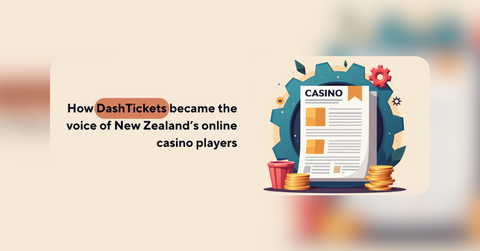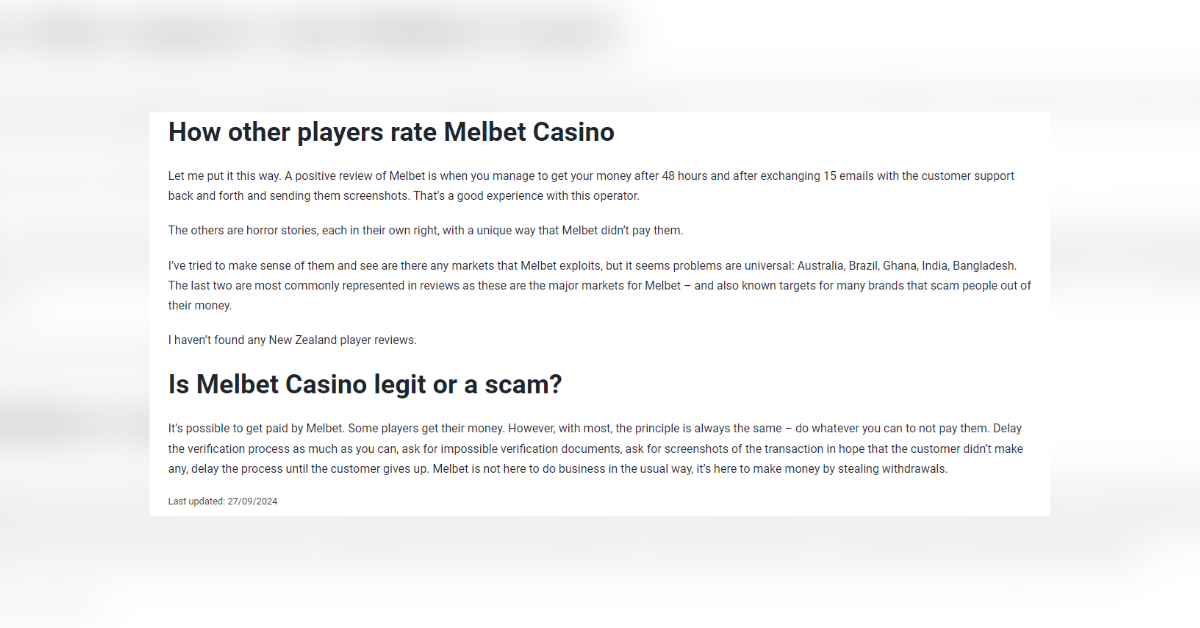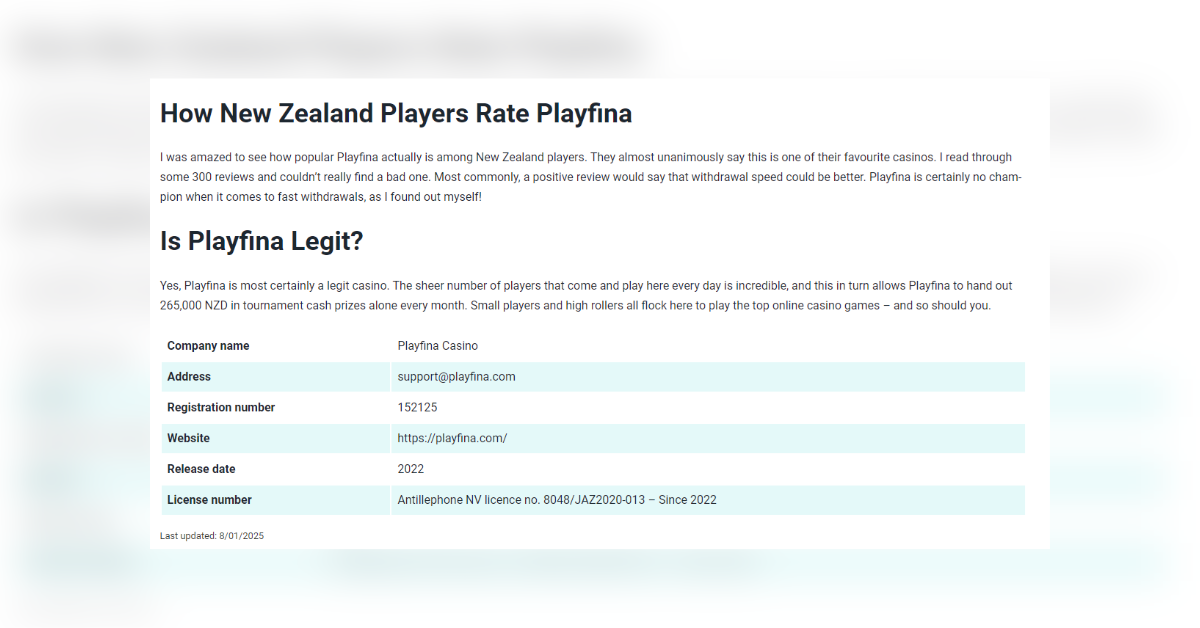 NEWS
NEWSHow DashTickets Became the Voice of New Zealand’s Online Pokies Players

June 18 2025, Published 1:18 a.m. ET
DashTickets is an online casino media outlet operated by Dash Tickets New Zealand Limited since 2009. Led by its editor-in-chief Mark Dash, DashTickets focuses on providing real players’ perspectives in an industry well-known for its aggressive advertising and PR campaigns.
“The reason we started DashTickets is simple: finding an independent media outlet offering unbiased players’ perspectives on online casinos is still nearly impossible. We want to protect players’ interests and ensure the web provides real feedback and criticism and isn’t just filled with endless casino advertisements” - Mark Dash, editor-in-chief of DashTickets.
As Dash explains, the need for an independent gambling magazine was heightened by New Zealand’s gambling regulations. While the country has laws to protect against illegitimate gambling organizations, there is little practical regulation for offshore online casinos, which are highly popular among locals.
“We had to step in and take matters into our own hands. While we obviously cannot regulate anything directly, we can help our compatriots by thoroughly monitoring and reviewing online pokies, so that the players can choose the best options and avoid any scams or mistreatment,” says Dash.

Currently, DashTickets online pokies magazine is one of the leading casino niche websites in New Zealand, with its database of online pokies serving as a go-to guide for locals. The team tests around four casinos weekly and ranks them using its proprietary DashScore system, which evaluates casino policies, games, usability, customer support, background, and reputation among New Zealanders. The latter part is key to the DashTickets’ success, says Dash.
Thorough reviews and New Zealanders’ perspective
DashTickets has implemented a strict review system consisting of 16 steps, and learning about other players’ experiences with a particular casino is among the most crucial ones. Here is a short version of the guidelines:
The team will register a new player account at the casino
Then the reviewer will examine the bonus offers in-depth
The reviewer will contact customer support to evaluate its responsiveness
Then the reviewer will make a deposit to estimate how quick and simple it is in reality
The player will examine casino games, play for at least 10 hours, and then try to meet the bonus requirements to withdraw winnings
Then the reviewer will complete the customer verification process and note how long it took them
The team will also conduct a background check for the casino as well as read all relevant documents and consult other NZ players. This way the review will end up perfectly comprehensive and thorough
- Edward Howarth, author at DashTickets“We believe that to write for our fellow New Zealanders, we must include their thoughts and opinions in every review — it’s the only way to ensure players are heard in the industry. Our reviewers are mystery shoppers, but that tactic alone isn’t enough to provide a full picture of the way a certain casino treats our compatriots — and that is the most important information we aim to obtain”
Want OK! each day? Sign up here!
Whenever the team writes a new review, they find and contact other players who have interacted with a particular casino to learn their stories and experiences. The team will reach out through its own channels, find users on casino forums, and use other methods to ensure they can provide an unbiased review that can represent New Zealanders’ opinions well.
“Think of it this way: most times you only see two types of players’ opinions in the media: it is either someone praising a casino for an ad or someone speaking of their gambling addiction. These are extremely polarizing, and both don’t represent the average player experience. Most players we speak to have so much more to say — it’s just that the media isn’t interested in anything that’s not these two options,” explains Howarth.

An example of a casino review page from DashTickets
As Howarth says, this way DashTickets’ articles can be helpful not just to its general audience, but to casinos themselves.
“A lot of casinos aren’t even fully aware of the full scope of issues players may have with their games, website, or anything else. First of all, there’s a general vacuum of helpful unbiased online pokies content they can rely on. Secondly, most players just leave the moment they don’t like something, and they don’t bother themselves with leaving a review or contacting support. The trust in the industry is fairly low, so why even try anything — there are dozens of other casinos you can access in a matter of seconds. Our reviews highlight issues real players have, and that is invaluable for everyone,” says Edward Howarth.
Future prospects for DashTickets
As Mark Dash explains, filling the niche DashTickets currently occupied was rather simple, since most casino-related media outlets didn’t pay enough attention to actual players’ experiences, focusing on partner materials and advertisements. However, the team’s success doesn’t stop them from expanding their ambition.
“We’re currently the go-to source for learning what to expect from a casino as a player, but we aim to cover the entire industry and its issues in New Zealand. We already provide market statistics, general trends, and articles on problem gambling, and we will continue to cover even more topics in the future to build a healthy and safe gambling community in the country,” says Mark Dash.
Want to contact DashTickets?
If you’re interested in contacting DashTickets, you can always reach out at https://dashtickets.nz/contact-us/.
The information provided in this article is for general informational purposes only. Gamble or play responsibly. If you or someone you know has a gambling problem, help is available. Call 1-800-GAMBLER. If you’re in the U.K. and need help with a gambling problem, call the National Gambling Helpline on 0808 8020 133 or go to gamstop.co.uk to be excluded from all UK-regulated gambling websites. We disclaim any liability for any loss or damage arising directly or indirectly from the use of, or reliance on, the information presented.


